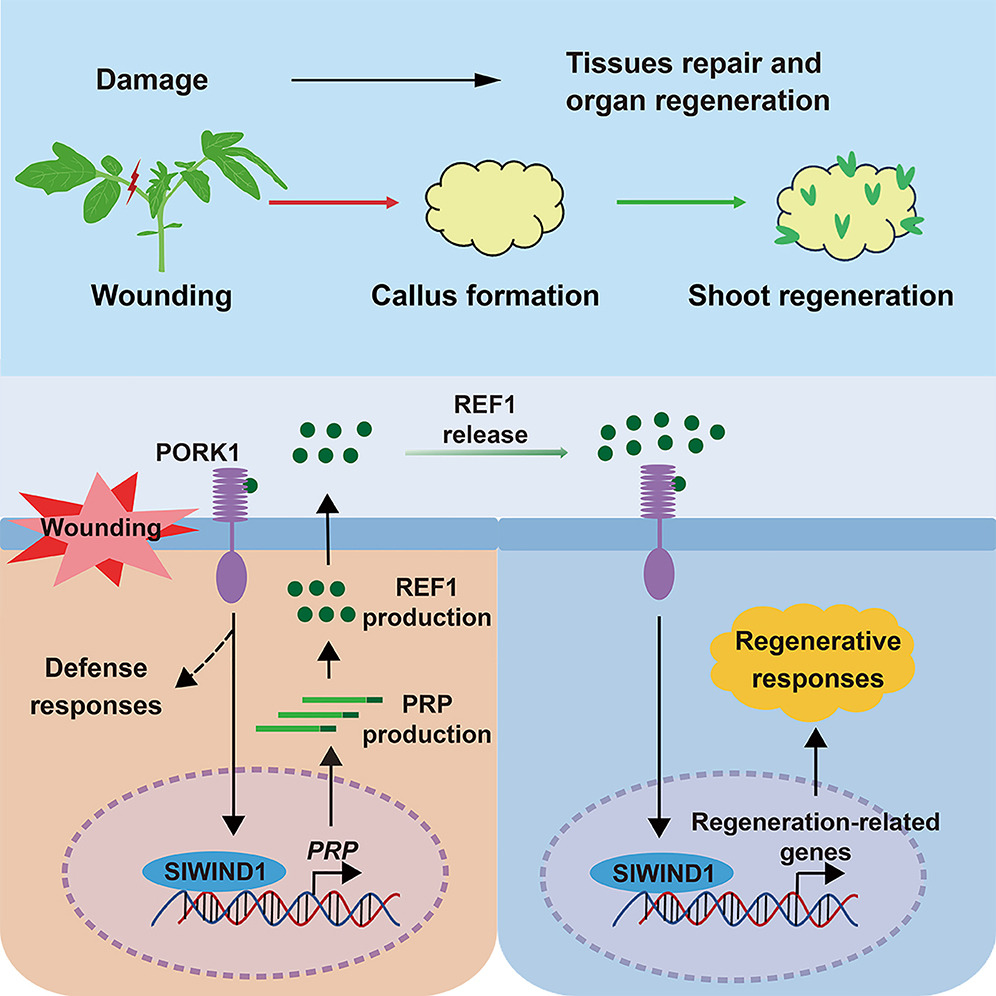
REF1 peptide is a wound signal that promotes plant regeneration
Plant Science Research WeeklyPlants have a remarkable ability to reprogram and regenerate as needed following wounding. This trait is invaluable not only to gardeners but also to regenerate plants following genome editing. Here, Wang, Zhai, Wu, and Deng have identified key steps in tissue regeneration. Through characterization of…
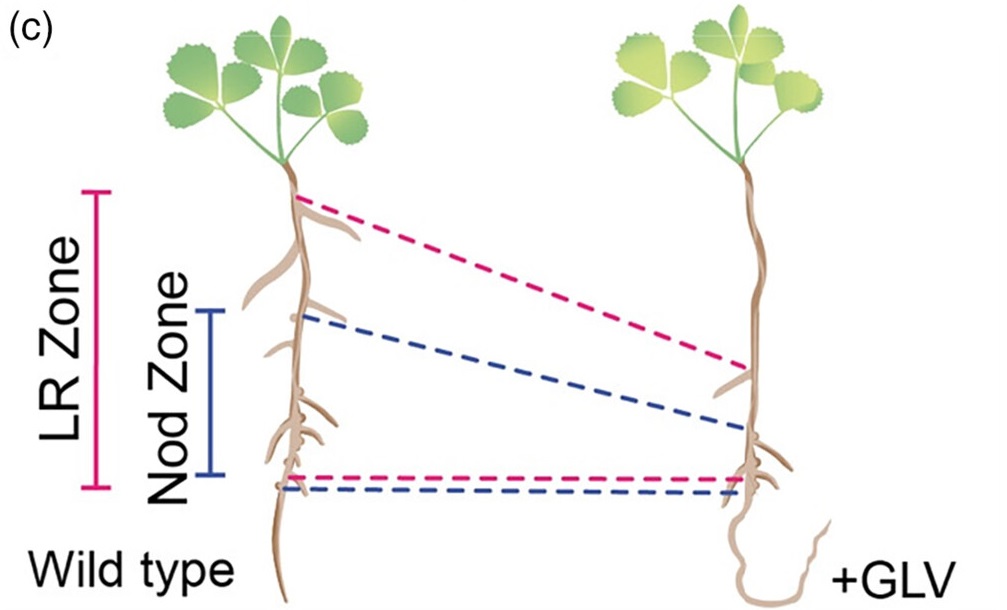
Peptide GOLVEN10 alters root development and noduletaxis
Plant Science Research WeeklyFor many years, biologists argued about whether plants have peptide hormones like animals have, and ever since it was first shown that plant peptides do have hormone-like functions, I’ve said a little cheer as new functions are discovered (Yay plants!). A few years ago, Sonali Roy and colleagues wrote…
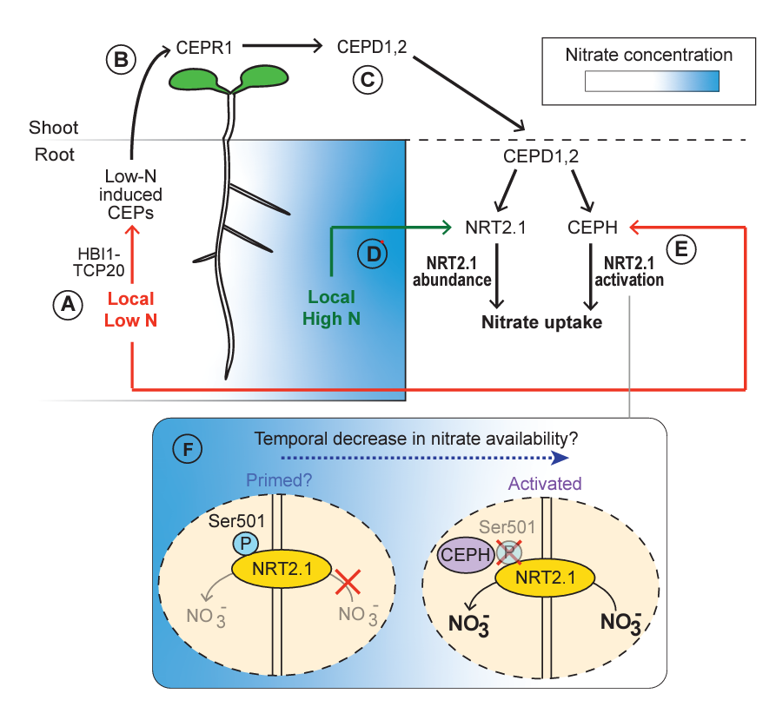
Review: CEP hormones at the nexus of nutrient acquisition and allocation, root development, and plant–microbe interactions
Plant Science Research WeeklyC-TERMINALLY ENCODED PEPTIDE (CEP) is a multigene family of peptide hormones originally described as systemic long-distance signals in response to nitrogen limitation. Over the years since the discovery of these peptide hormones, the literature on CEP biology has expanded the repertoire of developmental…
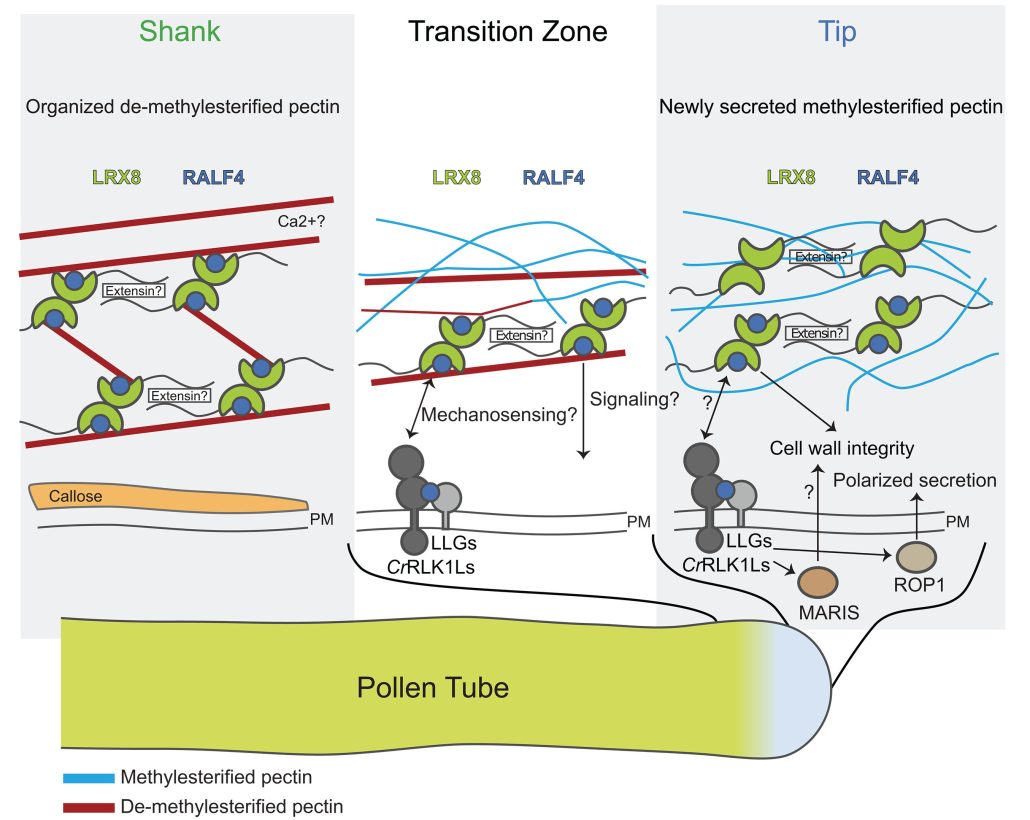
RALF4 prevents pollen tubes from growing crazy
Plant Science Research WeeklyPollen tubes are characterized by extremely fast elongation growth. Previously, small peptides known as RALFs (RAPID ALKALINIZATION FACTORs) were identified as signaling peptides, some with a role in pollen tube growth; for instance, RALF4/19 are important in maintaining the cell wall integrity of pollen…
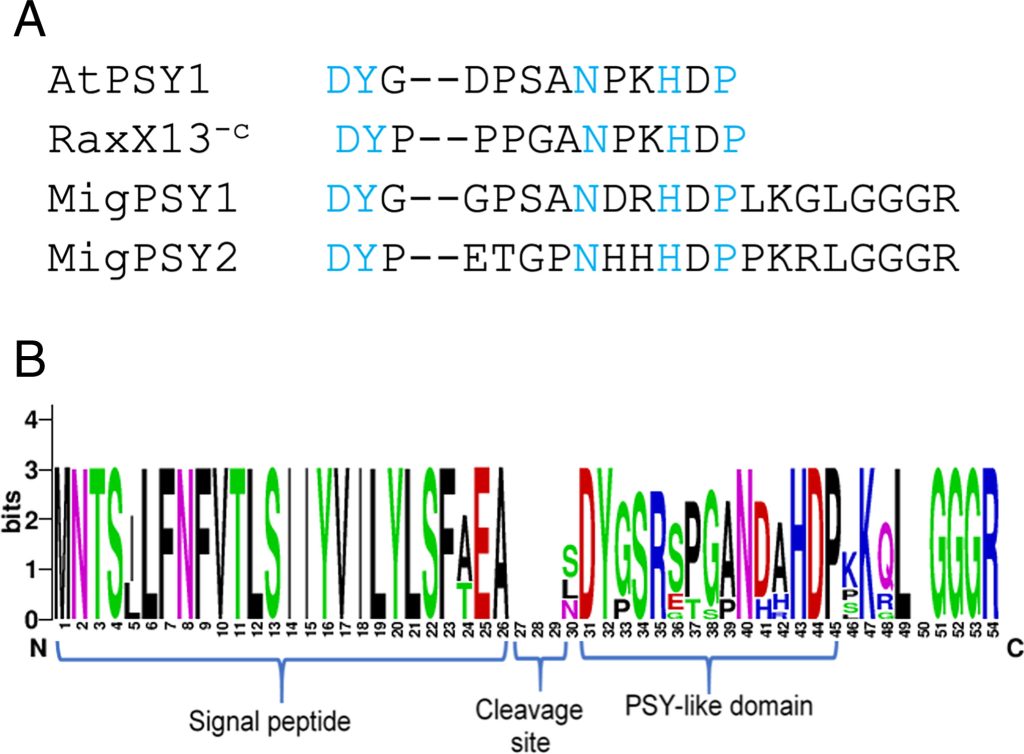
Root-knot nematodes produce functional mimics of tyrosine-sulfated plant peptides
Plant Science Research WeeklyI love reading about pathogens hijacking host systems; I’m always thrilled to see how “life finds a way”. Here’s another. Plants use a variety of peptides as hormones, many of which have covalent modifications of one sort or another. One class are the tyrosine-sulfated peptides, the PLANT PEPTIDE…

